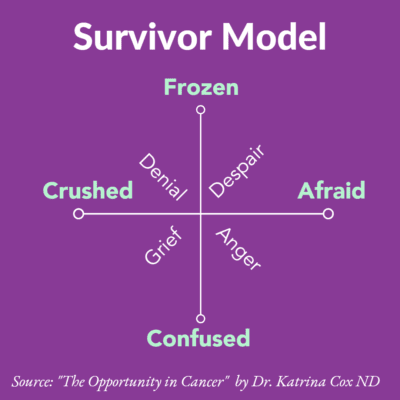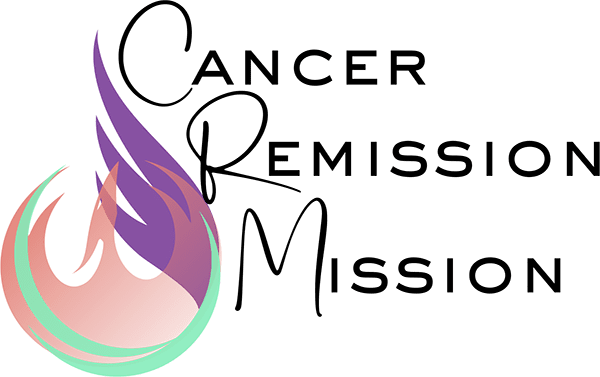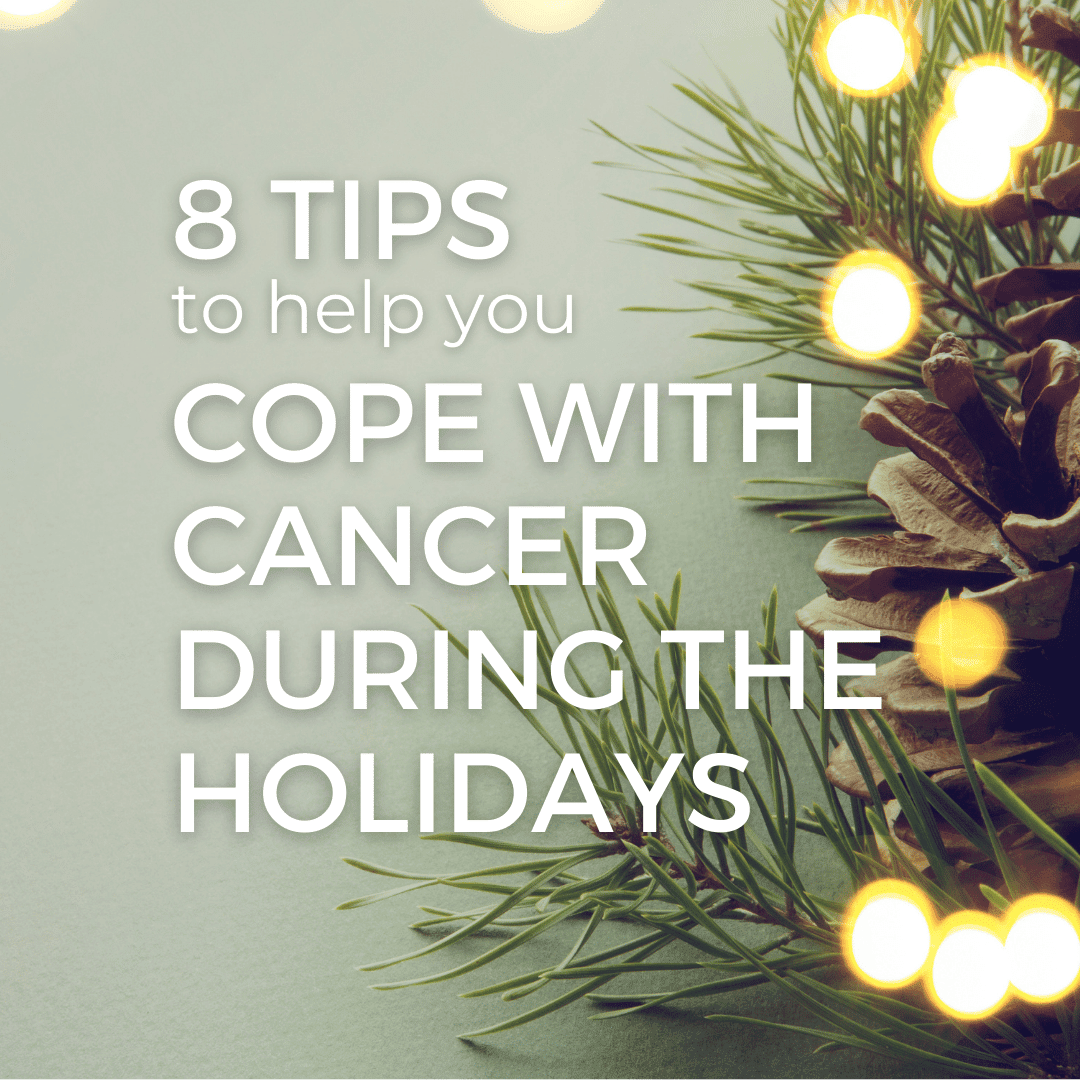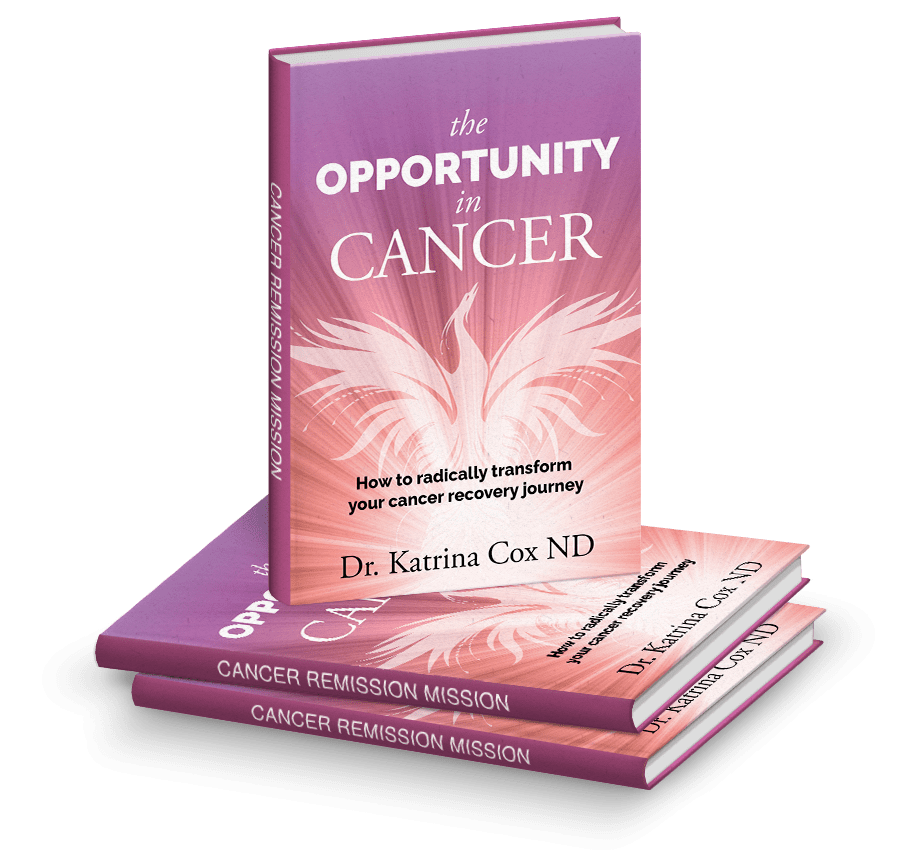It is no surprise that cancer survivors experience a great deal of physical and mental stress. From diagnosis to treatment, to frequent follow-up appointments, cancer patients receive and process a lot of information along the way. Decision-making, the worry of cancer progression, and the overall experience leaves many with a heightened sense of vigilance.
Yet, stress can be silent. Many people internalize their stress or diminish their experience with stress, chalking it up to the cancer journey. Just because others cannot see it, doesn’t mean it isn’t there.
The impact of stress goes beyond the psychological state and this is the hidden cost of stress during the cancer journey.
Stress impacts the physical body and our health in many ways. It impacts the body in terms of healing, recovery, and energy level. Stress compromises our immune system, which may already be weakened by cancer treatment, leaving individuals more susceptible to infection. If our cells are in that stress state, healing doesn’t come as easily. More simply put, our mental and emotional stress impacts our body’s ability to respond to physical stressors and illness. Emotional stress makes it harder for our bodies to deal with the physical stress – stress can therefore lead to more stress – a vicious cycle if not addressed properly.
Studies show psychological stress is moderately linked to the risk of cancer recurrence. Research like this suggests that stress reduction should be part of care plans to prevent cancer recurrence. In my experience, one of the most important things cancer survivors can do in terms of moving towards that thriving state is to create awareness around their own stress level. That way they’re able to effectively make changes in their day-to-day lives to relieve stress.
The Unspoken Burden of Keeping Up With Life
When I think of the burden of stress, my first thought is of moms who’ve been diagnosed with cancer and who are in the cancer recovery journey, especially those with young children. Moms carry a great deal of responsibility for their families. When cancer changes their ability to look after those responsibilities fully, it can create a substantial amount of additional stress.
There are many dimensions of upset and disappointment that many of these moms feel. Worrying about their child’s well-being and their future, as well as their own, there’s a level of fear that is sometimes unquantifiable. How do they care for their youngins and still keep up a brave face that they need to put themselves first in order to be able to make it through treatment?
I have countless stories of moms feeling broken because of how this disease and also its treatment, limits them. Simple things like not being able to walk their children to school or not having enough energy to be able to sit on the floor and play with their kids or help with homework can cause feelings of guilt and disappointment, the weight of which creates stress.
When they get to the end of treatment, there is a sense that they should be able to get back to “normal”. Yet, for many being in cancer remission doesn’t mean they have fully recovered from having cancer.
One particular woman I worked with really struggled after cancer remission. She had hoped to get back to the everyday aspects of being a mom. However, due to her ongoing low energy levels, she couldn’t walk short distances in her home, let alone walk her kids to school every day. These daily experiences with her kids were really important to her, and not being able to do this simple thing with them created a great deal of anguish for her. As part of our work together, we spent time focusing on this as a major cause of stress in her life. To relieve her chronic stress, we needed to build the physical capacity for her to walk her kids to school. For that, replenishing her physical energy levels needed to be addressed. We quickly discovered that her vitamin D level was low, and was at the root of her low energy.
By replenishing nutrient levels in her body she was able to walk a kilometer a day, which gave her the ability to walk her kids back and forth to school. In turn, we supported her in stress reduction, thereby also reducing her potential risk of cancer recurrence and her ability to move toward thriving.
The Survivor Model
Stress is complex. Sometimes it is difficult to know where to start in addressing it. Sometimes the underlying cause is not fully apparent to us yet.
One tool I use in my practice, and that I have included in my book, The Opportunity In Cancer, is the Survivor model. The way to approach stress is by breaking it down into deeper emotional states. Often we are expressing our stress through emotions and we don’t even realize it. Common stress-related emotions we encounter are anger, frustration, sadness, and fear. Understanding the underlying emotional state that our stress stems from, gives us better direction for how to start finding solutions.
As we discover the true underlying emotional state, the cause of the issue often becomes clearer, just as it did for the cancer-survivor mom I talked about. She experienced sadness (ie. crushed) that she could not do what she desired to do in her day-to-day life, which then helped us determine the best way to focus our attention.
 So how do you begin to address stress on the cancer recovery journey?
So how do you begin to address stress on the cancer recovery journey?
- Understand your current emotional state using the Survivor Model.
- Build an individual plan focusing on ways to resolve or improve the issues causing that emotional state.
- Create awareness of any roadblocks you encounter in resolving those issues, keeping you in an emotional state – keep a record of what is working and what isn’t in your day-to-day.
The reality is that the solution may not come easily at first. Your plan to address the underlying emotion, and therefore your stress, may need to be tweaked along the way as you uncover roadblocks. That is a normal part of the process. However, when we understand the emotional state we are trying to resolve, we are better able to find our way toward thriving again.
To get to the next level on the healing journey after cancer remission, we must understand the condition of stress, how it impacts our body, and how it impacts our daily lives. Be sure to check out the other posts in this series – Healing the Stress Effects and Moving Beyond Stress.




